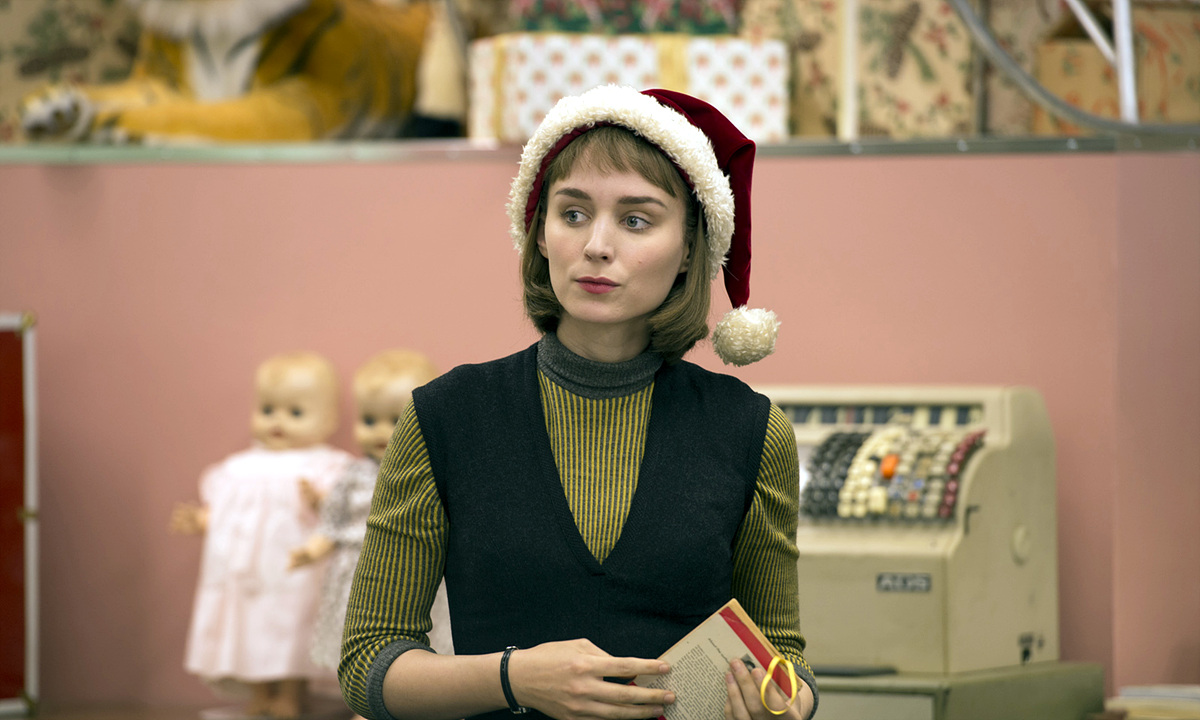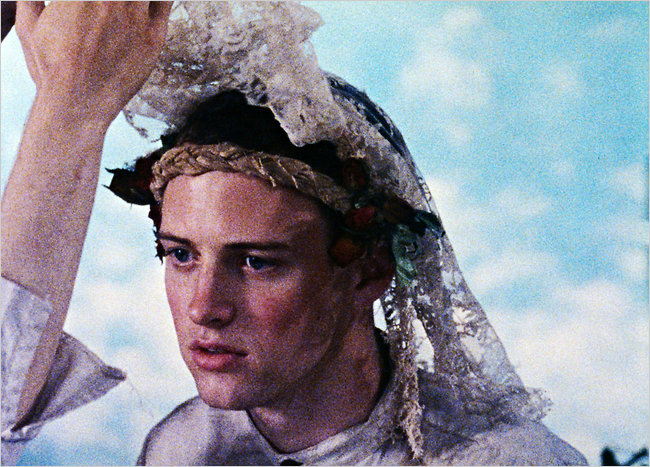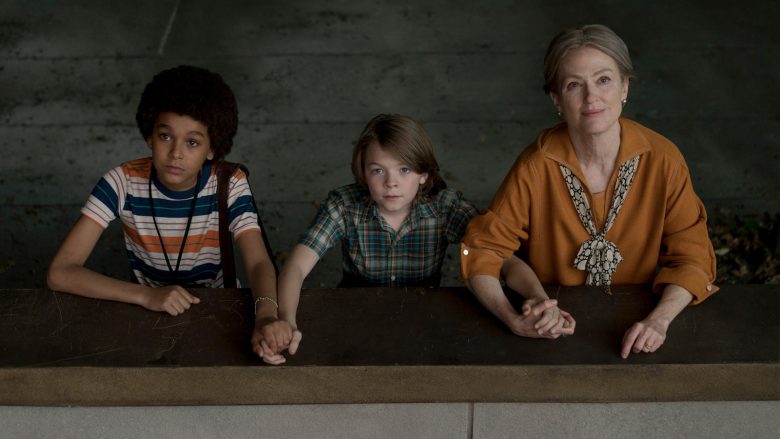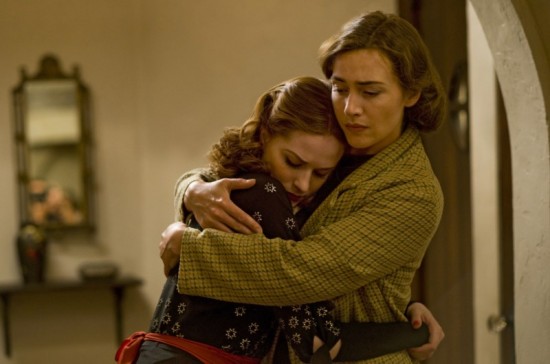
“The best films don’t offer redemption. They understand their own artificiality and are truthful as a result.”
– Todd Haynes
Exploring in his diverse and boldly mosaic body of work the complexity of identity and sexual politics, Todd Haynes is a singular and staggering talent. Born January 2, 1961 in Encino, California, Haynes’ fascinating film career probes via a wide variety of prisms, from Barbie dolls, Jean Genet-inspired prison-set humiliations, glam rock iconography, existential horror, the 1950s suburban homemaker, and pop cult heroes, to the lesbian love story, and more.
A pioneer of the New Queer Cinema that sprang from the 1980s breakout phase of American indie film, Haynes has largely since relinquished much of the overtly gay themes––though still present in places––opting instead to cleverly subtextualize these insights within mostly female protagonists or by dint of androgynous celebrities.
As you can see, no short sentence on Haynes’ distinct CV can avoid the intricacy and intelligence therein. While he may not be the most prolific of filmmakers––he patiently takes his time between projects, and perhaps they’re all the better for this––Haynes’ is so original an auteur that by now we certainly know that whatever he chooses to present to us will be deep, droll, elaborate, intensified, and impossible to shake.
What follows is the challenging task of ranking Haynes’ films “from best to worst”, and as an admirer of his work, I’m the first to enthusiastically exclaim that he’s not made anything close to a “bad film”. But I also didn’t want another writer taking up this charge and getting it wrong and so, dear reader, just accept that the title headline is a playful mislead. These are Todd Haynes films and they are all worthy of esteem and discussion, and if so inclined, multiple viewings.
PLEASE NOTE: Absent from this list, as they’re not of feature length, are Haynes’ numerous short films (the most notable of which would be 1987’s Superstar: The Karen Carpenter Story, his controversial cult featurette dramatizing the singer’s life with Barbie dolls) as well as some of his notable television work (he did an incredible episode of the short-lived HBO series Enlightened in 2013 and contributed to the TV documentary special Six by Sondheim).
8. Poison (1991)

Todd Haynes rushed onto the stage as a New Queer Cinema trailblazer in the dizzying debut, Poison. This audacious, confrontational, and uncompromising portmanteau triptych takes on three wholly different genres (faux documentary, gay prison romance, and 1950s sci-fi horror B-movie), drawing perhaps most notably from French iconoclast Genet’s lurid BDSM-addled poetic writings.
The common thread that sews these stories together rests in the dissection of traditional attitudes on homosexuality, and social panic, with results that move from subtle to extreme as familiar modes, methods, and archetypes get reworked and regenerated right before our eyes. Even today, over 25 years on, it’s rare to see such contrastingly delicate, lithe, and polemical designs in a single film. Poison is powerful stuff.
7. Velvet Goldmine (1998)

In Velvet Goldmine the glitter rock androgyny and artifice mixes with Oscar Wildean affectation and embellishment thriving through the ages––though mostly during 1970s London.
There’s a playfully camp and intellectually bright glow to Haynes’ substantial analysis of Brian Slade (Jonathan Rhys Meyers), a Bowie-esque pop performance icon and his lavish fandom, including a genre-defying contemporary in Curt Wild (Ewan McGregor, in a role that alloys aspects of both Iggy Pop and Lou Reed), and Arthur Stuart (Christian Bale), a sexually conflicted rock journalist and super fan.
Surreal, theatrical, erotically charged, and also something of an homage to Welles’ Citizen Kane, this is an operatic and fierce fever dream of a film. For fans of art, music, and free expression, Velvet Goldmine is the chiming and melodious mother lode.
6. Wonderstruck (2017)

Mysterious, strange, and stirring, Wonderstruck is a film about childhood, memory, communication, family bonds, and finding your way, and while it may be a minor film from a major director, it’s still a small miracle. In many ways it’s Haynes’ Hugo –– family friendly, dripping nostalgia, romanticizing the silent era of Hollywood, and a seemingly unpredictable about face from the director’s usual work.
Based on Brian Selznick’s 2011 novel of the same name (Selznick also adapted the screenplay) and bouncing back and forth between two interlaced stories set in 1927 and 1977, the film tells of two children named Ben (Oakes Fegley) and Rose (Millicent Simmonds). Ben in ‘77, mourns his mother’s passing and pines for the father he never knew while Rose in ‘27, fancies after an iconic actress of the silent screen named Lillian Mayhew (Julianne Moore), who’s visage and persona is cribbed from the great Lillian Gish as an endearing homage.
Ben and Rose, though separated by 50 years, find themselves down similar paths on their individual roads to enlightenment, and while a few of the twists in their tales may be easy to anticipate, they’re told with insight, emotion, peculiarity, and grace.
5. Mildred Pierce (2011)

This quiet, understated, and heartbreaking masterpiece is a five-part HBO miniseries that’s adapted from the famed 1941 novel from James M. Cain, which was also the basis for the Joan Crawford film noir classic from 1945. If this version has any real flaw it might be that the runtime is a little daunting for those that want more of a quick fix, but for the patient viewer, Haynes offers comprehensive and very rich rewards.
Kate Winslet is wonderful in the eponymous and Emmy-winning role as Mildred Pierce, the altruistic and overprotective matriarch who, amidst the backdrop of the Great Depression, is separating from her husband (Brían F. O’Byrne), single-handedly opening a restaurant, reluctantly falling in love with the amicable Monty Beragon (Guy Pearce), and all this while trying to regain the love and respect of her difficult and ungrateful daughter, Veda (Evan Rachel Wood). Don’t miss it.